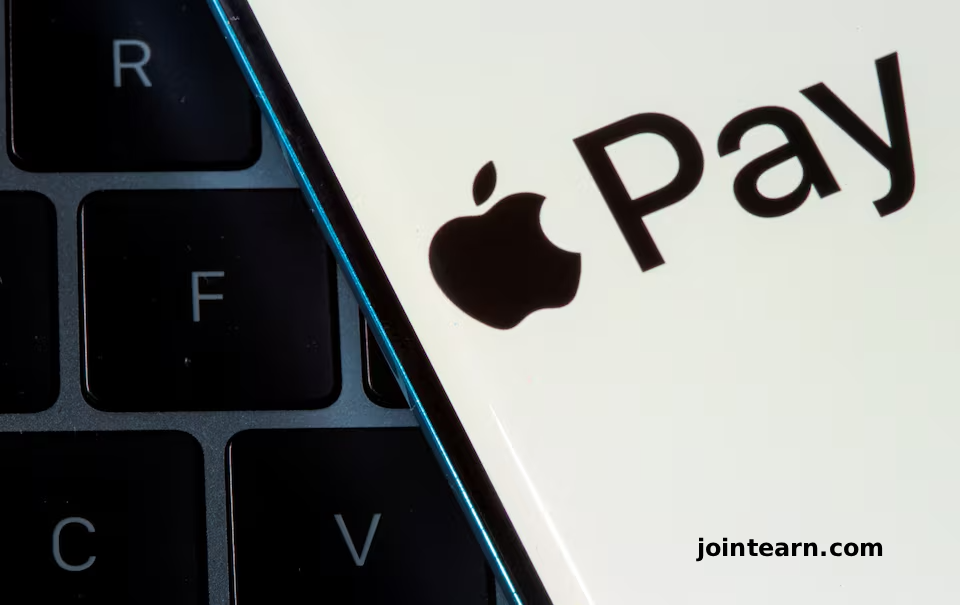
Apple Pushes to End Racketeering and Trade Secrets Lawsuit Over Apple Pay
ATLANTA, Oct. 28, 2025 — Tech giant Apple Inc. (NASDAQ: AAPL) has asked a federal judge in Atlanta to dismiss a high-profile racketeering and trade secrets lawsuit filed by Fintiv Inc., which accuses Apple of stealing proprietary technology used to build its widely popular Apple Pay mobile payment platform.
In a Monday night court filing, Apple’s legal team urged the judge to either dismiss the lawsuit outright or transfer it to Texas, where U.S. District Judge Alan Albright previously dismissed Fintiv’s related patent infringement case earlier this year.
Apple argued that the claims were time-barred and duplicative, asserting that Fintiv had known about the alleged misconduct since 2014 and was now attempting to “revive its failed patent case under the guise of racketeering.”
Background: Fintiv’s Allegations Against Apple
Fintiv, a Texas-based mobile payments company, alleges that Apple misappropriated technology originally developed by CorFire, a Georgia fintech firm that Fintiv acquired in 2014. The complaint accuses Apple of using CorFire’s proprietary mobile wallet and contactless payment innovations without authorization to develop Apple Pay, which launched the same year.
According to Fintiv, Apple’s conduct amounts to racketeering activity under federal law, involving alleged collusion with major financial institutions — including Bank of America, JPMorgan Chase, Wells Fargo, Citigroup, and Capital One — as well as payment networks Visa, Mastercard, and American Express.
Fintiv claims Apple’s integration of its allegedly stolen technology into Apple Pay allowed the iPhone maker to collect transaction fees from these financial partners, creating a “multi-billion-dollar revenue stream” at Fintiv’s expense.
Apple’s Defense: “No Pattern of Racketeering” and Stale Claims
In its 2025 filing, Apple described Fintiv’s claims as baseless and untimely, saying the company “waited far too long to act” and failed to demonstrate any ongoing pattern of racketeering or criminal enterprise.
“The court should reject Fintiv’s attempt to revive its failed patent case in a new district with no connection to the facts,” Apple stated in its motion.
Apple also asked that, if the case is not dismissed, it be transferred to Judge Alan Albright in Waco, Texas, who has “deep familiarity with the underlying facts and law” from presiding over nearly seven years of related litigation.
The Legal Landscape: From Patents to Racketeering
The Apple Pay patent dispute between the two companies dates back to 2018, when Fintiv filed a patent infringement suit against Apple in the Western District of Texas. That case was dismissed by Judge Albright on August 4, 2025, after finding that Fintiv’s patents were invalid and that the company failed to prove misappropriation.
Following the setback, Fintiv pivoted its legal strategy, filing a racketeering and trade secrets lawsuit in Georgia federal court — an unusual move that extends the fight beyond intellectual property and into alleged corporate misconduct.
Judge Albright, who once handled nearly 25% of all U.S. patent cases, has been viewed as a plaintiff-friendly venue for technology disputes. However, procedural reforms in 2022 redistributed patent filings among all judges in his district, reducing his caseload concentration.
The Stakes: Billions in Mobile Wallet Revenue
Apple Pay, introduced in 2014, is now embedded in hundreds of millions of iPhones, Apple Watches, iPads, and MacBooks, processing billions of transactions globally each month. The service generates substantial revenue for Apple through interchange fees charged to banks and card issuers.
Fintiv argues that Apple’s commercial success came at the cost of its proprietary digital wallet innovations, while Apple maintains that its technology was independently developed and legally protected under its own patents.
Legal analysts say the case could test the limits of racketeering laws in technology disputes, especially when combined with claims of intellectual property misappropriation.
Case Details and Outlook
The lawsuit, titled Fintiv Inc. v. Apple Inc., Case No. 25-04413, is being heard in the U.S. District Court for the Northern District of Georgia.
If the court agrees with Apple’s motion, the case could either be dismissed or transferred back to Texas, effectively consolidating the years-long legal saga into a single jurisdiction.
Fintiv’s attorneys have not yet commented publicly on Apple’s motion.


Leave a Reply